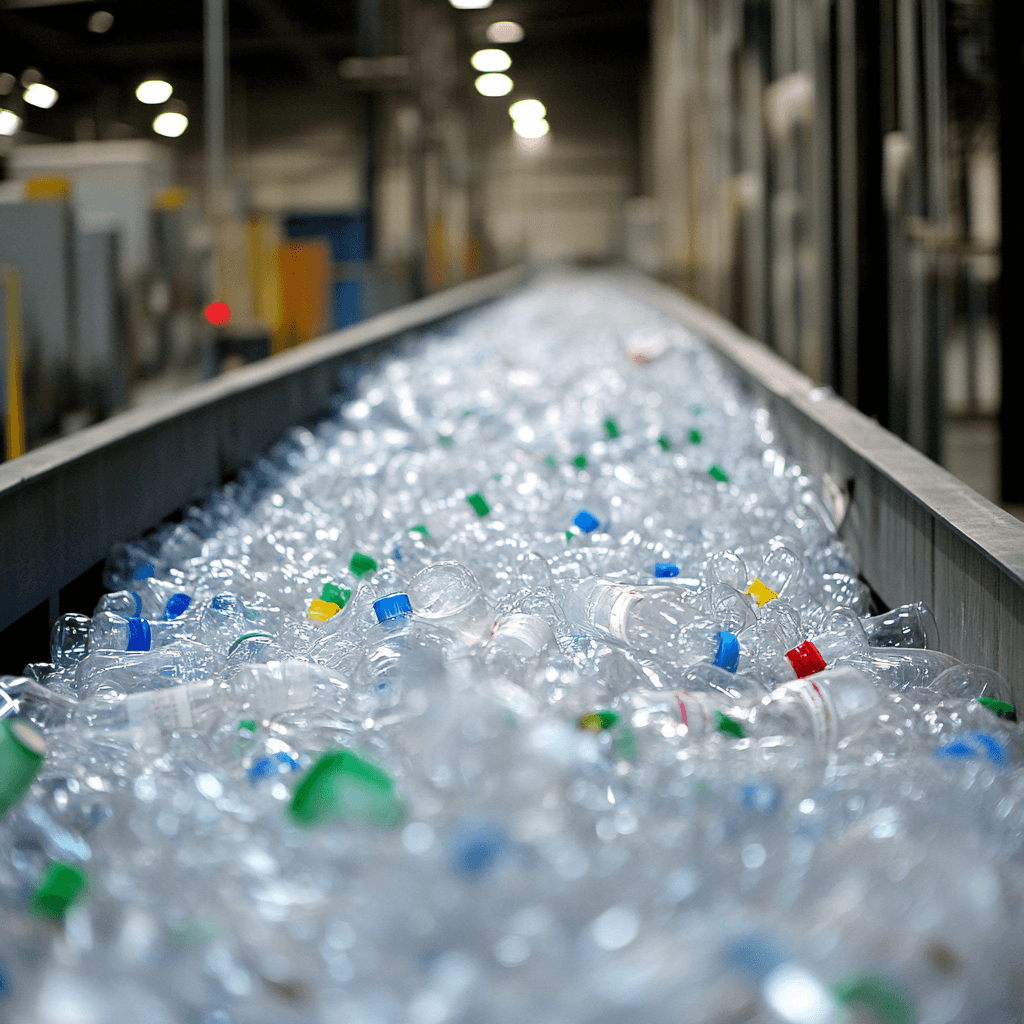Dutch plastic recycling industry struggles with cheap new plastic
Many plastic companies are having to close their doors because they cannot compete with China.
Published on September 29, 2025

Team IO+ selects and features the most important news stories on innovation and technology, carefully curated by our editors.
The Dutch plastic recycling industry is in crisis. Many companies, such as Healix, Ioniqa, and Umincorp, are having to close their doors because they cannot compete with dirt-cheap new plastic from China, the Middle East, and the US. The low prices of these new plastics, combined with a lack of stimulating government policy, are causing recyclers to suffer structural losses. The government is hesitant to take measures such as mandating the use of recycled plastic or imposing a levy on new plastics. Without intervention, the entire Dutch recycling industry is at risk of disappearing, which would be a major blow to the circular economy.
Recycling companies in trouble
The problems in the Dutch plastic recycling sector are significant. In the space of a year and a half, ten Dutch plastic recycling companies have gone bankrupt, and two have moved abroad. These companies cannot compete with the low price of new plastic made from oil or gas. The Dutch government has withdrawn legislation that was intended to help recyclers. As a result, recycling companies are unable to compete, leading to bankruptcies and companies relocating abroad. Healix, a plastic recycler from Maastricht, is one of the companies that is struggling and is considering moving to a low-wage country. Marcel Alberts, the director of Healix, wonders if he has been too naive in thinking he could improve the world.
The rise and fall of Healix
Marcel Alberts, the owner of Healix, started his recycling company based on an idealistic vision. In 2017, he saw a photo of a sea turtle entangled in a fishing net, which prompted him to rethink his career in the production of synthetic fibers for ropes and nets. He started Healix, a recycling company that processes old ropes and nets into new raw materials. With a subsidy of several million euros and his own money, he built a factory. In 2022, the new factory was opened by Frans Timmermans, who praised the company as “a great start” towards greater circularity. However, due to rising energy prices after Russia invaded Ukraine and cheaper new plastic from Russia and the US, Healix's recycled plastic became structurally more expensive than new plastic. As a result, Healix had to reduce its workforce and seek creative solutions to keep the factory running.
The government's ‘mop policy’
The Dutch government does not seem to be taking a consistent approach to plastic recycling. There were plans to introduce a mandatory blending requirement for recycled plastic in packaging from 2027 and a tax on new plastic from 2028. These measures were intended to support the recycling industry, but have been scrapped under pressure from plastic processors and producers. A ‘Plastic Table’ with recyclers, plastic producers, supermarkets, and large food companies presented a series of solutions in the summer, such as a new obligation to use recycled plastic. However, during a parliamentary debate in September, it became clear that the outgoing government saw no need for new measures. Healix is now considering moving abroad, like Cedo, another large plastic recycler in Limburg, where wages and energy costs are lower.
Ioniqa: From ‘National Icon’ to bankruptcy
Ioniqa, a company that developed a unique technology for recycling PET plastic bottles, has also gone bankrupt. The Eindhoven-based company was named a ‘National Icon’ and received tens of millions of euros in subsidies. Ioniqa claimed to have made significant progress in the development of its technology, but was hampered by cheap new plastic. The company also struggled with an underdeveloped supply of used PET bottles and the lack of legal standards for recycling. In 2023, Ioniqa suffered a major loss of €39 million as a result of a write-down on land and factory, which depleted the company's financial buffers. Despite a restart in a slimmed-down form, the market remains challenging.
Europe's recycling industry
The problems are not limited to the Netherlands. The European plastic recycling sector is in crisis. Operating costs are high due to bureaucracy and rising energy prices. Recycled materials are more expensive than new plastic, which is due to the unfair economic advantages of fossil fuel subsidies. The number of recycling companies forced to close doubled between 2023 and 2024. There are concerns that there will be no viable recyclers left by the time the Packaging and Packaging Waste Regulation deadlines arrive. Plastics Recyclers Europe argues that recycling capacity on the continent would need to at least double by 2030 to meet EU targets, but doubts whether this is feasible. A campaign by Searious Business, Maastricht University, TOMRA, and others is attempting to address the “broken economy” of the European recycling industry.
Need for action
The current situation is unsustainable. Willemijn Peeters, CEO of Searious Business, warns that Europe is heading for the collapse of its recycling industry if urgent action is not taken. She argues that recycling alone cannot solve the plastic waste crisis and that systemic changes are needed. Critics argue that market forces alone are not enough and that instruments such as a tax on fossil-based plastic, subsidies for recycled plastic, or legal minimum percentages of recycled plastic in new products are necessary. TNO proposes improving the competitive position of Dutch recyclers by imposing a tax of 15 euro cents per kilo of plastic. The cabinet wants to enforce European regulations in 2026 to tackle dumping practices of cheap plastic from China, so that recycling companies can compete again.
